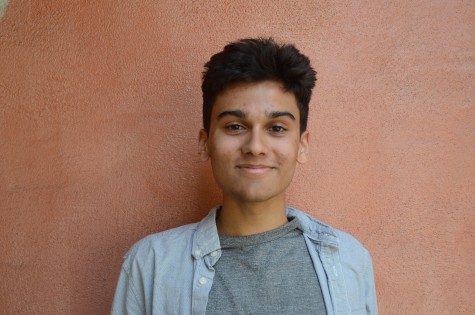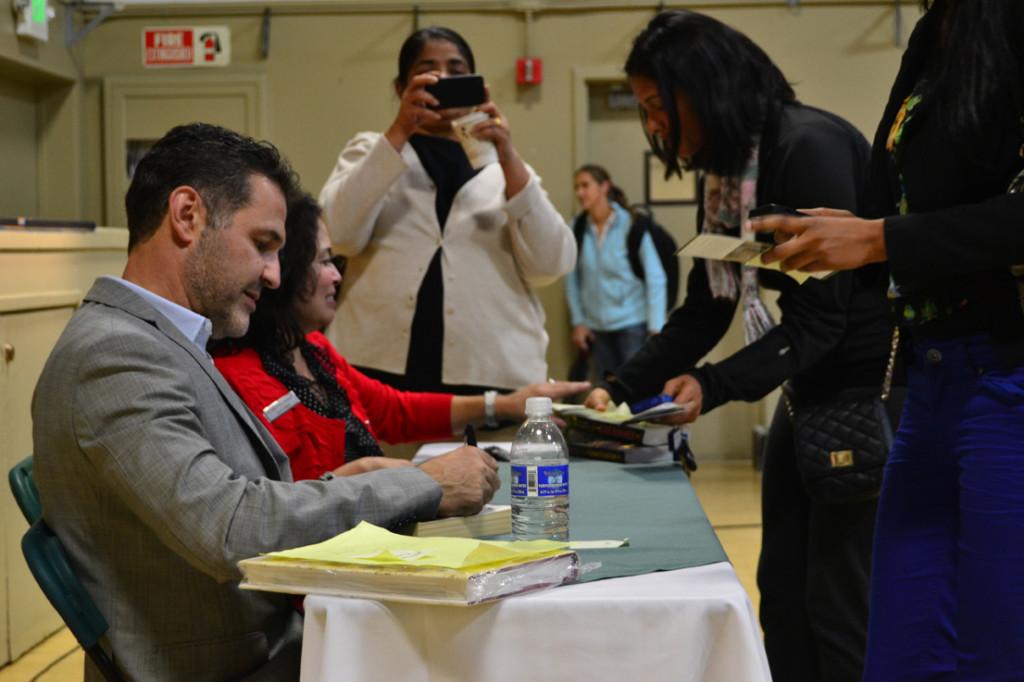Q&A with The Kite Runner author Khaled Hosseini
Author of international bestsellers The Kite Runner and A Thousand Splendid Suns, Khaled Hosseini shared his insights with TalonWP.com regarding his foundation’s work in Afghanistan, funding organizations to help build shelters and promote education especially for girls. He also discussed his upcoming novel And the Mountains Echoed, due to be released in May 2013.
Shay Lari-Hosain: Can you tell us a little bit about your projects for Afghan refugees living in Pakistan?
Khaled Hosseini: We fund a number of simultaneous projects. We’re looking at assisting women and children who have come back to Afghanistan with their families after living abroad for many years. Something like six million of them have come back. So we have a slew of different projects; the main one we’re focusing on is the shelter project; which is to provide shelters through the United Nations for returning families. That’s been the major one with refugees. But we have a number of other projects you can see on our website. All of them are geared towards helping either in the field of education, or health care, or employment of women and children.
Samantha Hoffman: What specifically was your inspiration or motivation behind the shelter project?
KH: I have worked, and I still am working as a spokesperson for the United Nations Refugee Agency, and I’ve had the chance to travel with them to different places. When I went to Afghanistan I had a chance to see firsthand the difference that their shelters make. So the UN actually provides the shelter; we put money into their existing shelter program. And so I saw the need for shelters, and how people had come back to Afghanistan and frequently ended up homeless, sometimes on the ground, in tents.
Allison Kiang: How has the war in Afghanistan affected the living conditions of the people whose lives you are trying to improve?
KH: Well, the effect has been dramatic because Afghanistan has been in some form of turmoil for over thirty years now; it was already a very poor nation to begin with even in its heyday. So all the institutions that make society stable were all destroyed, so people who’ve come back to Afghanistan face a lot of challenges, because they live in a very poor nation. There’s very limited access to things that we take for granted, like water, food, shelter, health care. And then it has a government that is, at the present time, hasn’t been very effective in helping its people. Day to day life for a lot of Afghans is a real challenge, especially those living in rural areas.
Ashwini Iyer: How has your foundation been helping to bridge the gap in women’s education and helping to promote literacy?
KH: We fund groups that are active in those fields in Afghanistan. For instance, we are helping fund a learning center for women, we’re helping fund the education of young women to go to Kabul University, we’re helping fund the education of female medical residents in primary care, we’re helping fund a program that looks after children whose mothers are incarcerated so that they can have a place to live, they can have counseling, and legal protection and so on. We’re trying to do our best, and we’re a little slice of the big solution pie, we don’t have feet on the ground per se, but we fund groups that do.
AI: What obstacles have you faced in your efforts to do so?
KH: The groups that work there face obstacles all the time; a lot of it has to do with security, because it’s kind of hard to deliver aid, especially in the countryside when it’s not safe to go out there because of the Taliban or some threats from insurgent groups. But we do a thorough vetting process to make sure that they’re effective, that they’re cost efficient, that they’re doing what they say they’re doing, and that they’ve had good results and good financials. We evaluate them fully to make sure we’re not wasting our donors’ money.
AK: With your work towards education, given your childhood experiences in Iran as the son of a diplomat, what is your perception of how education is in Iran in comparison to what you are trying to establish in Afghanistan?
KH: Iran is in a much different condition than Afghanistan. It has a lot more resources: it’s a much wealthier nation, much more developed; it has much more in terms of financial and human capital. It has an excellent educational system; in fact, there are about a million Afghan refugees in Iran, and some of them are attending Iranian schools. It’s very difficult to compare Iran to Afghanistan because they’re two very different realities.I do know there’s been a lot done in terms of education in Afghanistan. Some two thousand schools have been built or repaired in Afghanistan since 2001. Millions of kids have returned to school. The challenge is not just sending kids to school so they can learn to read and write, but it’s also to sending young people to college so they can have higher skills more than just literacy.
AK: What can you tell us about your upcoming novel And the Mountains Echoed?
KH: Other than the title, probably not a whole lot at this point. Otherwise my publisher would shoot me! I can tell you it’s a multi generational story about family and taps into some of the themes that I’m interested in. The push and pull within individuals inside a family, the dramas that play out over many years between people; those are the things that have always interested me.
SH: What advice would you have for young aspiring writers?
KH: If you want to be a novelist, read as many different kinds of novels as you can, and to write all the time. Make it a habit of writing every day. You get better at it the more you do it. It’s like anything else, like playing guitar, the more you play the better you get. Read a lot; you can’t learn to play guitar if you’ve never listened to music.
SL: What’s your advice for students who might want to get a book published in the future?
KH: Write not to publish, but write because you love it, because you feel like you have something personal, authentic, and intimate to say, as opposed to a goal of getting published. Because if that’s your goal, then you’re probably not going to succeed. If you’re at that stage where you’ve written something that you think ought to be published and can be published, is to have very low expectations and a very thick skin, because you’re going to get rejected a lot, and to persevere, and to not take anything personally. It can be very difficult to get fifty rejections, after you put two years of your life into something and nobody’s interested in it. That can be a tough pill to swallow.
AK: Your current job is solely being a writer, right? And you used be a doctor as well; do you miss working in a clinic?
KH: I miss some of my colleagues and patients, but I really like what I do now, and I was never all that enamored with medicine anyway. This is, I feel, like a really good fit for me. I’m very happy doing what I do.
SL: What can students do to further raise awareness about the importance of women’s education especially in that region?
KH: First is to educate yourself about what’s going on in different parts of the world. Understand that, you know, that many many people in Afghanistan don’t have access to schools, that often times, a school is basically a tree and kids sitting around it without a roof. They have to share books, and pencils, but there’s a great desire and hunger for education in Afghanistan, and that education is the thing that can make a massive difference in the country. Without it, it’s very difficult to move forward and build a stable society. If you desire to do that and you’re motivated, you can become a proponent, a vocal advocate for education in Afghanistan. You can raise awareness in your classroom, in your school, in your family, in your community, and help bring attention to the problem and motivate people to do something.
SL: What can students do to help improve the conditions in Afghanistan for the poverty-stricken?
KH: We have a program for students to become involved with our foundation and help us raise funds for shelters for homeless people; that’s the SOS program that a number of schools have adopted. You can look into that, but there’s so much that you can do through your creativity, use of technology. You wouldn’t have to devote your life to it, we’re talking about an hour or two a week and even that would be plenty.

Shay Lari-Hosain (12) is the Editor-in-Chief and co-founder of Wingspan Magazine. Shay has interviewed 2013 Nobel Laureates, authors like Khaled Hosseini...


















![“[Building nerf blasters] became this outlet of creativity for me that hasn't been matched by anything else. The process [of] making a build complete to your desire is such a painstakingly difficult process, but I've had to learn from [the skills needed from] soldering to proper painting. There's so many different options for everything, if you think about it, it exists. The best part is [that] if it doesn't exist, you can build it yourself," Ishaan Parate said.](https://harkeraquila.com/wp-content/uploads/2022/08/DSC_8149-900x604.jpg)




![“When I came into high school, I was ready to be a follower. But DECA was a game changer for me. It helped me overcome my fear of public speaking, and it's played such a major role in who I've become today. To be able to successfully lead a chapter of 150 students, an officer team and be one of the upperclassmen I once really admired is something I'm [really] proud of,” Anvitha Tummala ('21) said.](https://harkeraquila.com/wp-content/uploads/2021/07/Screen-Shot-2021-07-25-at-9.50.05-AM-900x594.png)







![“I think getting up in the morning and having a sense of purpose [is exciting]. I think without a certain amount of drive, life is kind of obsolete and mundane, and I think having that every single day is what makes each day unique and kind of makes life exciting,” Neymika Jain (12) said.](https://harkeraquila.com/wp-content/uploads/2017/06/Screen-Shot-2017-06-03-at-4.54.16-PM.png)








![“My slogan is ‘slow feet, don’t eat, and I’m hungry.’ You need to run fast to get where you are–you aren't going to get those championships if you aren't fast,” Angel Cervantes (12) said. “I want to do well in school on my tests and in track and win championships for my team. I live by that, [and] I can do that anywhere: in the classroom or on the field.”](https://harkeraquila.com/wp-content/uploads/2018/06/DSC5146-900x601.jpg)
![“[Volleyball has] taught me how to fall correctly, and another thing it taught is that you don’t have to be the best at something to be good at it. If you just hit the ball in a smart way, then it still scores points and you’re good at it. You could be a background player and still make a much bigger impact on the team than you would think,” Anya Gert (’20) said.](https://harkeraquila.com/wp-content/uploads/2020/06/AnnaGert_JinTuan_HoHPhotoEdited-600x900.jpeg)

![“I'm not nearly there yet, but [my confidence has] definitely been getting better since I was pretty shy and timid coming into Harker my freshman year. I know that there's a lot of people that are really confident in what they do, and I really admire them. Everyone's so driven and that has really pushed me to kind of try to find my own place in high school and be more confident,” Alyssa Huang (’20) said.](https://harkeraquila.com/wp-content/uploads/2020/06/AlyssaHuang_EmilyChen_HoHPhoto-900x749.jpeg)



